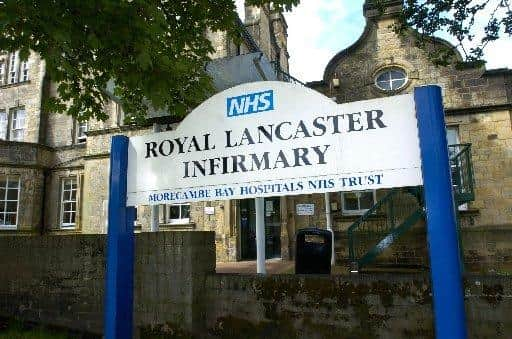Health bosses seek to reassure after bacteria that can cause Legionnaires' disease found at Royal Lancaster Infirmary
and live on Freeview channel 276
University Hospitals of Morecambe Bay NHS Trust has confirmed that low levels of legionella bacteria showed up in routine testing at the hospital.
The trust confirmed that the infection was not widespread across the whole site and steps are now being taken to resolve the issue.
Advertisement
Hide AdAdvertisement
Hide AdLegionella is routinely tested for and the trust has a plan in place if it is showing.


Bridget Lees, executive chief nurse, director of infection prevention, said: "Routine testing has identified low levels of the legionella bacteria. We can reassure communities that no patients or staff are affected within the hospital.
"Staff were made aware at the time and affected outlets were taken out of use. Work is ongoing in the trust to resolve this issue."
What is legionella?
Legionella bacteria can cause a serious type of pneumonia called Legionnaires’ disease. Legionella bacteria can also cause a less serious illness called Pontiac fever.
Advertisement
Hide AdAdvertisement
Hide AdYou can get Legionnaires' disease if you breathe in tiny droplets of water containing legionella bacteria.
It's usually caught in places like hotels, hospitals or offices where the bacteria has got into the water supply. It's less common to catch it at home.
You can get Legionnaires' disease from things like air conditioning systems, humidifiers, spa pools and hot tubs, and taps and showers that are not used often.
You cannot usually get it from drinking water that contains the bacteria, other people with the infection or places like ponds, lakes and rivers.
Symptoms of Legionnaires' disease include a cough, difficulty breathing, chest pain, a high temperature and flu-like symptoms.